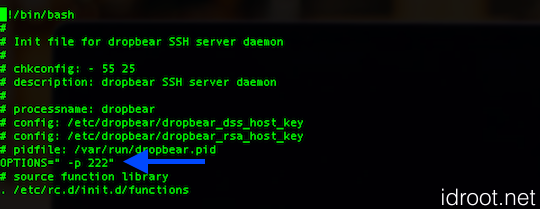
I would recommend copying this policy to something else and modifying it instead. This is a policy that has all plugins enabled, TCP scan of all ports, safe checks enabled, web tests enabled, the PCI-DSS setting enabled, and several other things that are less important. There exists a policy shipped as part of the distribution service called "Prepare for PCI-DSS audits (section 11.2.2)". Keeping it in each server is a hassle to maintain, and could lead to the key being compromised (although it's still hard, you are increasing the chances of that happening). Since you have a key file in each server, you will have to do this for each one.Īgain, you should only have only one copy of your private key, on your local machine. Of course, ssh-keygen provides a convenient way to do both steps with a command. If you want to change that passphrase you have to decrypt the file and encrypt it again. When you setup a passphrase for it you are encrypting that file assymetrically with the given pass. Now to answer your actual question, ssh private key files are just that. What you need is agent forwarding to your local machine, where your private key is located. You do not need to have your private key on the server in order to do this. I gather you connect to one of this servers, do some work, and then commit to github. The private key is located on several locations from where I upload/download data That is, on the hard drive of the computer you're currently sitting at. Your private key should only be held locally. Can anyone shed any light on this and suggest a fix? It is possible that I do have dropbear or something that includes it as part of the RHEL distribution but cannot see it in the package list (using yum) nor is it present in the base RedHat repository.Īs noted in the comments, you seem to be misusing your private key. I have a suspicion that the error is a slight red herring and some other package on the system exposes one of the mentioned vulnerabilities, and the report persists after ensuring all installed packages are up to date.

This may allow a local attacker to gain access to process memory. (CVE-2016-7408) - A flaw exists in 'dbclient' or 'dropbear server' that is triggered when compiling with 'DEBUG_TRACE' and running with '-v'.

This may allow a remote attacker to potentially execute arbitrary code. (CVE-2016-7407) - A flaw exists in 'dbclient' that is triggered during the handling of '-m' or '-c' arguments, as used in scripts. This may allow a context-dependent attacker to potentially execute arbitrary code. (CVE-2016-7406) - A flaw exists that is triggered during the handling of specially crafted OpenSSH key files that are imported via 'dropbearconvert'.


%s and %x) are not properly used when handling usernames or host arguments. Versions of Dropbear SSH server prior to 2016.74.0 are potentially vulnerable to the following vulnerabilities :Ī format string flaw exists that is triggered as string format specifiers (e.g.
#Dropbear ssh 2013.69 vulnerabilities full#
Here is the full text of the error:ĭropbear is an SSH client and server application. The machine has OpenSSH but not dropbear.
#Dropbear ssh 2013.69 vulnerabilities upgrade#
Upgrade to the Dropbear SSH 2013.59 or later.Scanning a machine on a local network (it is the only machine scanned, and is running Red Hat Enterprise Linux 7.4) and Nessus reports a vulnerability present in an outdated version of Dropbear SSH installed on the machine.


 0 kommentar(er)
0 kommentar(er)
